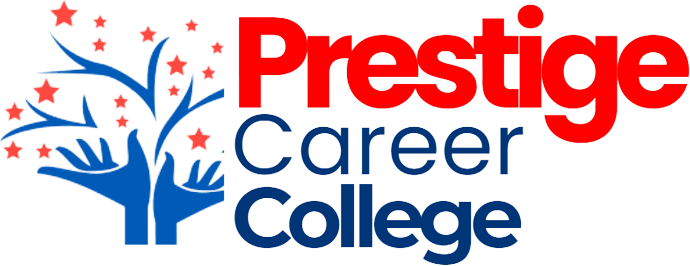Essential Steps to Obtain Your Nurse Assistant Certificate
Starting a career in healthcare can be both rewarding and life-changing, especially when you're entering a field as vital as nursing. One of the most practical and accessible ways to begin is by earning a nurse assistant certificate. This credential opens the door to work in hospitals, long-term care facilities, and other medical settings, where you'll play a key role in patient care and daily support. If you're ready to pursue meaningful work in the nursing field, here's a look at the essential steps to obtain your nurse assistant certificate.
Meeting Education Requirements for Training
The journey starts with fulfilling the basic educational prerequisites. Most programs require a high school diploma or GED. In some cases, high school students may be allowed to begin training during their senior year, depending on the regulations in their state. While science courses aren't mandatory, prior exposure to health-related subjects like biology can help you feel more prepared. Some schools also require students to pass a basic reading and math assessment before enrollment, so it’s important to review eligibility criteria carefully.
Selecting a Certified Training Program
Choosing the right program is one of the most important decisions you’ll make on your path toward certification. It's essential to enroll in a state-approved and accredited program that includes both classroom instruction and clinical training. Course content generally covers infection control, safety procedures, patient rights, and basic nursing skills. It's important to choose a college where the curriculum is designed to prepare students to enter the healthcare workforce with confidence and the skills needed for success.
Evaluating Program Flexibility and Scheduling Options
When choosing a training program, it’s important to consider how well the class schedule fits into your current responsibilities. Many students juggle work or family commitments while pursuing their nurse assistant certificate. Programs that offer evening, weekend, or hybrid options can make it easier to stay on track. Flexibility in scheduling helps reduce stress and increases the chances of successfully completing your coursework.
Exploring Financial Aid and Payment Options
Cost is often a concern for those entering healthcare training programs, but many schools offer financial aid options. Grants, scholarships, and payment plans can make earning your nurse assistant certificate more affordable. Some employers also provide tuition reimbursement if you commit to working with them after certification. Asking about available financial assistance during your program search can ease the burden and help you focus on learning.
Understanding the Training Curriculum
Training programs are structured to provide a balance of theoretical knowledge and hands-on experience. Students can expect to learn subjects such as anatomy, medical terminology, patient care techniques, and communication. Clinical training is a vital part of the experience and gives students the opportunity to apply what they've learned in real healthcare settings. These clinical rotations allow you to assist actual patients under professional supervision and are key to building confidence in your abilities.
Reviewing State-Specific Requirements
Each state has its own guidelines regarding nurse assistant certification, including training hours, testing procedures, and renewal rules. Some states may require more extensive clinical hours, while others might have unique background check protocols. Before enrolling in a program, it’s essential to verify what your state requires to avoid delays or additional steps later. Staying informed about local regulations helps you meet certification requirements efficiently.
Preparing for the Certification Examination
After finishing your coursework, you’ll need to take and pass a state certification exam. This typically includes two parts: a written test and a skills evaluation. The written section is usually multiple choice and focuses on safety procedures, patient care, and ethical standards. The hands-on component requires you to demonstrate practical skills such as assisting with mobility, measuring vital signs, and basic hygiene support. Many schools offer exam prep sessions and practice tests to help students succeed on their first attempt.
Completing Health Screenings and Background Checks
Before receiving certification, you’ll be required to complete certain health screenings and background checks. These steps confirm that you are medically and ethically fit to work in direct patient care roles. Medical clearance usually involves a physical exam, TB test, and proof of immunizations. Background checks often include fingerprinting and a review of any criminal history. Completing these screenings on time helps prevent delays in your certification process and employment opportunities.
Exploring Career Opportunities After Your Certification
Once certified, you’ll find a variety of job options available to you. Nurse assistants are needed in hospitals, skilled nursing facilities, rehabilitation centers, and even private homes. The work you do may involve helping elderly patients, supporting recovery after surgery, or assisting those with chronic conditions. According to the American Association of Colleges of Nursing, nursing is the largest healthcare profession in the United States, with almost 4.7 million registered nurses. Starting out as a nurse assistant is a strong entry point into this vast and growing field.
Gaining Experience Through Volunteer Opportunities
While completing your training, seeking out volunteer work in healthcare settings can give you additional experience and confidence. Hospitals, nursing homes, and clinics often welcome volunteers to assist with non-clinical tasks. These opportunities allow you to observe professional caregivers, build relationships with healthcare staff, and strengthen your communication skills. Volunteering can also enhance your resume and show potential employers your commitment to patient care.
Building Strong Foundational Skills
In addition to your technical training, success as a nurse assistant depends heavily on soft skills. Compassion, patience, and strong communication are vital when working with patients and healthcare staff. Organizational skills are equally important, especially when it comes to following procedures and documenting care accurately. Emotional strength also plays a role, as nurse assistants often work with patients experiencing physical or emotional distress. A well-rounded training program will help you grow in these areas, but cultivating them on your own will set you apart as a professional.
Maintaining and Renewing Your Certification
Earning your nurse assistant certificate isn’t the end of your journey. Most states require certification renewal every two years. To maintain active status, you may need to show proof that you've worked a certain number of hours under the supervision of a licensed nurse. Some states may also require continuing education. Keeping track of renewal dates and fulfilling any work or training requirements is essential if you want to stay eligible to work without interruption.
Advancing in the Healthcare Field
A nurse assistant certificate can be the first step toward a long and meaningful career in healthcare. Many certified nurse assistants go on to become licensed practical nurses (LPNs) or registered nurses (RNs), often receiving preference in admissions to nursing programs because of their real-world experience. Starting in this role helps you explore various healthcare specialties and determine where your interests lie, whether it’s pediatrics, geriatrics, rehabilitation, or acute care settings.
Recognizing the Value of a Supportive Learning Environment
Where you complete your training can influence your level of success. A supportive learning environment includes access to skilled instructors, hands-on lab facilities, and opportunities to get one-on-one help when needed. It's important to choose a college that not only prioritizes academic preparation but also mentorship and guidance that supports each student’s personal and professional goals. Having instructors who care about your future can make a major difference in your ability to succeed both during and after training.
Becoming a certified nursing assistant is an excellent way to launch a career in healthcare. Following each step—from meeting educational requirements and completing training to passing exams and securing employment—will help position you for success in a growing and meaningful profession. If you’re ready to earn your nurse assistant certificate and begin a new chapter in your career, contact Prestige Career College today to enroll.






Share On: